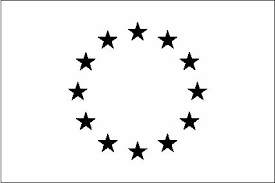The Ministry of European Funds through the National Contact Point for Roma, as beneficiary, implemented the project between 02.09.2019 and 30.11.2020 "National Platform of Good Practices for Roma", co-financed by European Commission – Directorate General Justice and Consumers through Program for Rights, Equality and Citizenship 2014-2020.
The project was co-financed under Contract number 8727, and the reimbursable eligible value of the project from the European Commission is 94.98% respectively 61,749.16 euros.
The objective of the project was to facilitate and strengthen the dialogue between local, national, regional authorities and Roma communities, by bringing together actors involved in activities aimed at Roma communities and strengthening collaborative relationships between them.
The project is addressed to Roma communities, NGOs and representatives of national, local and regional authorities, representing the beneficiaries direct of the project as follows:
- 160 people from Roma communities, NGOs and representatives of local and national authorities beneficiaries of the workshops;
- 500 people who will access the communication and cooperation platform;
The project aimed to carry out activities dedicated to the promotion and facilitation of cooperation and collaboration between Roma communities, NGOs and local authorities. In this sense, during the implementation period, two series of workshops were organized in each of the 8 regions of romania. The workshops were supported by authorized trainers with experience in the field.
Based on the open space method, in the first series of workshops, the needs of Roma communities and the problems they face were identified. In the second series of workshops, activity models adapted to the specific needs identified in the four main areas pursued by the Romanian Government Strategy for the Inclusion of Romanian Citizens belonging to the Roma Minority (education, health, housing and employment) were developed. Thus, workshop participants had access to information about effective models for addressing these areas and could share their own experience by presenting cases they encounter in their reference communities.

